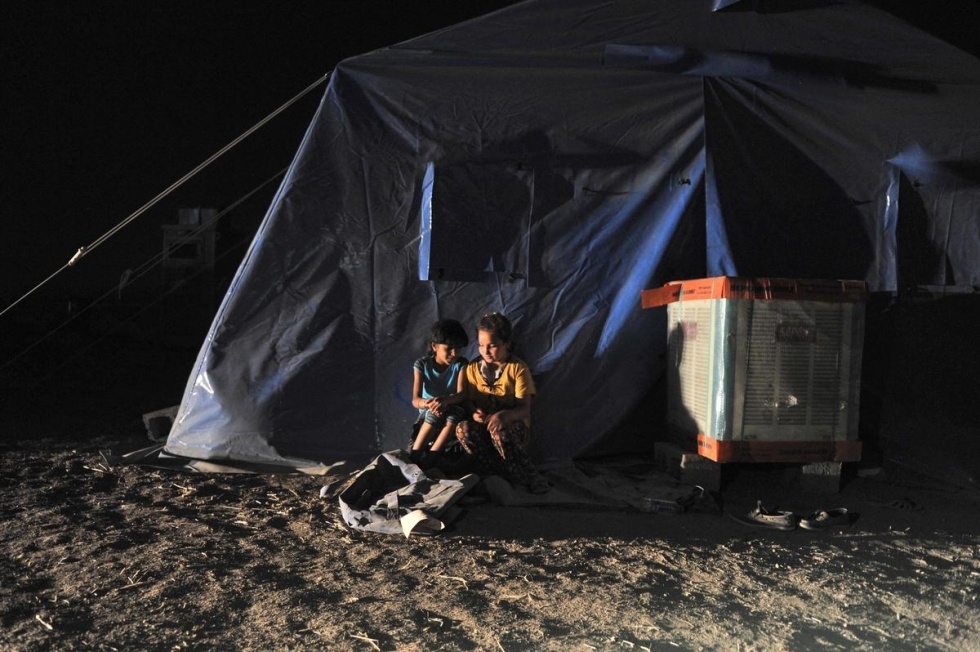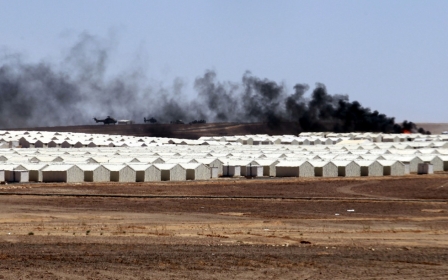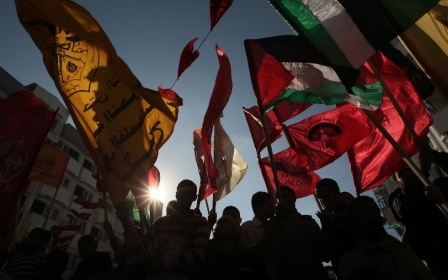Dreams of Peace on the Night of Destiny

It’s been a bad week for blowback.
Just as the brouhaha over the US solider Bowe Bergdahl being freed by his Taliban captors was simmering, the Taliban attacked the Karachi Airport. Soon after, this was followed by yet more drone attacks on Waziristan, killing women and children.
And so it goes. Tit for tat. Violence begets violence as every school boy knows.
But what many tend to forget, is that the Taliban were a product not only of the CIA and the Pakistani intelligence services, the ISI, but that their foot soldiers were plucked from the refugee camps created by a brutal Soviet invasion. Young men who had come of age knowing only war and devastation were easy recruits. And so it goes.
Just when it seemed things could not get worse, they did. The images on the BBC this week greeted us all with apocalyptic visions of ISIL which also goes by the name ISIS. (I really think Egyptians should sue for copyright infringement here – the cheek of a nasty jihadist group’s acronym spelling the name of the goddess of motherhood, magic and fertility - oh…the irony. But only one of many.)
Here we have the nightmare scenario that many have predicted would happen after the disastrous invasion of 2003- outright civil war along sectarian lines. But wait – that already happened from 2004 until…well very recently- did it not? Yes it did, school boys, yes it did.
But what’s worse now is that the conflict in Syria has added fuel to the fire. Images of ISIL literally erasing the border (with bulldozers) between the two countries abound. Facts on the ground, as the Israelis like to call it, facts on the ground.
And who is funding these nasty ISIL types, so terrible they’ve been condemned by former ally al-Qaeda?.....well besides the usual extortion, kidnapping, dodgy charities and supporters in the Gulf, one could say that the US support for Syrian rebels didn’t hurt. Of course they supported the Syrian Free Army, not the jihadists that got in on the game per se, against the Assad regime. That’s the same regime they used to make covert deals with and farm out torture to. Do you follow school boys? I know, it’s a bit hard to keep up, but pay attention now.
So, in spite of Saddam Hussein being “son of the USA” as many Iraqis used to call him during the sanctions regime, and waging an 8-year war with Iran that killed a generation of young men on both sides (with the US arming both enthusiastically), their alliance with the “butcher of Baghdad” was becoming increasingly untenable. “Our man in Baghdad” was out and “regime change” was in. Actually you could say “regime change” was the “new black” as it had been test run in Afghanistan and lord knows those corrupt warlords installed after the “fall” of the Taliban, were way better at winning hearts and minds and bringing democracy to the nation than those nasties spawned by the ISI, the CIA and the refugee camps in Pakistan post-Soviet invasion.
So now Iraq has an extra half million displaced people to add to the millions of refugees spawned post invasion. More young men for nasty militias to exploit. More destabilization to thwart any attempt at “democracy” or even basic public institutions.
Unfortunately, supporting dictators and then removing them, starving a sovereign nation for 12 years under a draconian UN sanctions regime and allowing a criminal class to replace a Baathist bureaucracy, empowering the Shiah fundamentalists that had once been jailed in a former secular police state to run covert prisons jailing Sunnis; not to mention drone strikes in Peshawar and illegal invasions or allowing a civil war in Syria to go on unabated, all these things have consequences.
There are many “what ifs”, much blame to share and mistakes to point out. But the end result seems to be year zero for Iraq, as the new Mongols run amok. The tragedy of it all is truly staggering and it’s difficult to offer any immediate solutions in a 1000 word op-ed.
But I would deign to suggest that in a world where refugee camps are routinely created by illegal invasions and civil wars; where uneducated young men from depressed American states are recruited to kill other young men and create more refugee camps; and where dissolution of sovereign states hardly seems to penetrate a global attention span compromised by celebrity tweets, blowback is alive and well and it’s coming to a war zone near you.
And so, as I write this on the night of destiny, the 14th of Shaban on the Islamic calendar, when believers must spend the night in supplication asking God for “protection from calamities” and “to provide refuge to the refugees and give peace to those who are in fear”, I pray for a better future for the region and for the world. A future where short term gain, the sanctity of oil fields and the international arms industry are overpowered by investments in public health and education, justice for the displaced and succour for refugees; where young men can get jobs and build schools rather than join armies or militias just to feed their families; a future where seemingly arbitrary binary divisions between “us” and “them” dissolve into an acknowledgement that we are all connected, and that nothing happens in a vacuum.
And remembering Iraq, land of poets where language was invented, now falling like a dying star, with a line from Rabia, the Sufi woman poet from 8th century Basra who wrote "I am going to light a fire in paradise and pour water on to hell/so that both veils may vanish altogether."
- Hadani Ditmars is the author of Dancing in the No-Fly Zone: a Woman's Journey Through Iraq, a past editor at New Internationalist, and has been reporting from the Middle East for two decades.
The views expressed in this article belong to the author and do not necessarily reflect the editorial policy of Middle East Eye.
Photo Credit: Two Iraqi refugee children in a makeshift refugee camp in Iraqi Kurdistan (AA)
New MEE newsletter: Jerusalem Dispatch
Sign up to get the latest insights and analysis on Israel-Palestine, alongside Turkey Unpacked and other MEE newsletters
Middle East Eye delivers independent and unrivalled coverage and analysis of the Middle East, North Africa and beyond. To learn more about republishing this content and the associated fees, please fill out this form. More about MEE can be found here.





